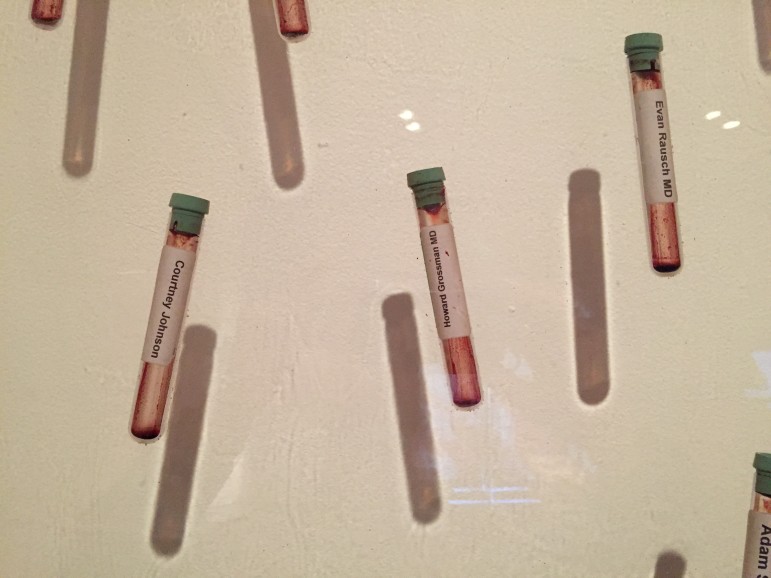Gay Men Blood Donors Not as Risky as Once Thought, Researchers Say
For decades, many gay men have been prohibited from donating blood. They were considered high-risk during the AIDS epidemic back in the 1980s. As of two years ago, they can donate if they’ve abstained from sex for a year, but many researchers say that’s unrealistic and unnecessary. Michael Saag, author and director of UAB’s Center for AIDS Research, tells WBHM’s Dan Carsen that testing is now much more sophisticated, so the FDA rules about who can donate blood should be less restrictive. Here are some highlights.
Heterosexuals Can Be Infected Too
“One possible rule change would be, let’s not think about who’s gay or straight; let’s just say any human being that is coming in to donate blood, if they have had sex with a person of unknown status in an unprotected sexual activity where they could have become infected in the last 30 days, they should defer donation and have them come back when they haven’t had such an exposure.”
Effects Beyond Discrimination
The current rules exclude an estimated 600,000 units of blood per year. The total U.S. yearly supply is about 13.6 million. Saag says, “With blood shortages coming and going, it would be nice to have as many donors and have that 600,000 units of blood safely available for us when we need it. Think Las Vegas, or think Houston with the hurricane. There can be all kinds of catastrophes where blood is needed. We want as much as we can.”
The Big Picture
“Every HIV provider and every HIV expert that I know are totally comfortable with changing the rules for blood donation for uninfected gay men, mostly because of a human rights issue and anti-discrimination … You want to discriminate if you’re protecting the population, but once you don’t have a compelling reason to keep a rule in place like this, then it’s only discriminatory and I don’t think anybody wants to discriminate in a situation that we know otherwise it’s going to be safe.”
Dr. Saag on whether politics and scientific illiteracy play into barriers to gay men giving blood:
Saag on what motivates him to do this work:
Saag on the state of the fight against HIV in Alabama:
Eric Dane, ‘Grey’s Anatomy’ star and ALS awareness advocate, dies at 53
Eric Dane, the celebrated actor best known for his roles on "Grey's Anatomy" and "Euphoria" and who later in life became an advocate for ALS awareness, died Thursday. He was 53.
Venezuela approves amnesty that may release of hundreds detained for political reasons
Venezuela's acting president has signed into law an amnesty bill that could lead to the release of politicians, activists, lawyers and many others. The approval marks a stark turn for the nation.
In a historic vote, Tennessee Volkswagen workers get their first union contract
Two years ago, the successful union drive at this plant was expected to spark victories throughout the South. But now, as members vote to make their contract official, momentum has fizzled.
NASA chief blasts Boeing, space agency for failed Starliner astronaut mission
NASA's Jared Isaacman slammed Boeing for failures with its Starliner spacecraft, which was deemed unsafe to return its crew of two astronauts from the International Space Station
Internal memo details cosmetic changes and facility repairs to Kennedy Center
Trump announced his plans to close the Kennedy Center entirely for two years "for Construction, Revitalization, and Complete Rebuilding." The announcement came after many prominent artists canceled existing scheduled appearances.
R&B stars consider two ways to serve an audience
Two albums released the same day — Jill Scott's return from a long absence, and Brent Faiyaz's play for a mid-career pivot — offer opposing visions of artistic advancement in the genre.







